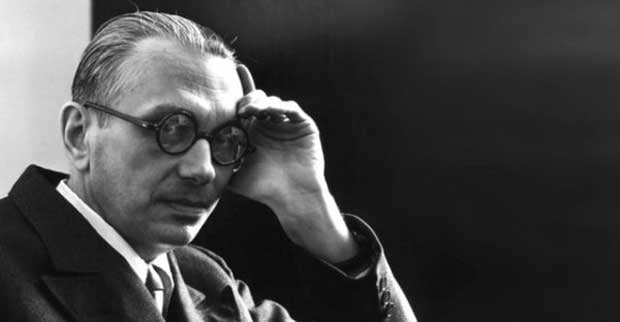Kurt Gödel was a philosopher, logician, and mathematician. Gödel, along with Aristotle and Gottlob Frege, is regarded as one of history’s most influential logicians. He had a significant impact on scientific and philosophical thought in the twentieth century.
In his final years, the legendary mathematician Kurt Gödel grew preoccupied with the idea that someone was trying to poison him, he would only consume food made by his wife. When she fell ill, he stopped eating and starved himself to death.
The Early Life of Kurt Gödel
Kurt Gödel was born on April 28, 1906, in Brünn, Austria-Hungary to Rudolf Gödel, and Marianne Gödel. He was incredibly close to his mother, that he appeared frightened and worried when she was not present. He experienced rheumatic illness when he was six years old, but life continued as usual after he recovered. He began reading medical books regarding the disease he had suffered from when he was eight years old and discovered that a weak heart was a probable cause. Even though there was no evidence that he had a weak heart, Gödel was convinced that it was his problem, and he became obsessed with his health and well-being. (Source: Royal Society Publishing)
Kurt Gödel’s Education
At the age of 18, Gödel joined his brother at the University of Vienna. During this time, he accepted mathematical realism as a philosophy. He was a member of the prestigious Vienna Circle, which included Moritz Schlick, Hans Hahn, and Rudolf Carnap. He was drawn to the study and thoroughly read Kant’s Metaphysische Anfangsgründe der Naturwissenschaft. After that, Gödel proceeded to study number theory, but he became interested in mathematical logic after attending a Moritz Schlick seminar on Bertrand Russell’s book Introduction to Mathematical Philosophy. Mathematical logic, according to Gödel, was a science preceding all others, including the ideas and principles underlying all sciences.
Gödel’s life may have been shaped by his attendance at a presentation by David Hilbert on completeness and consistency in mathematical systems in Bologna.
In 1928, Hilbert and Wilhelm Ackermann published Grundzüge der theoretischen Logik, an introduction to first-order logic. The completeness problem was addressed: Are the axioms of a formal system adequate to deduce every assertion that is true in all models of the system?
This problem was chosen as the subject of Gödel’s Ph.D. dissertation. He accomplished it in 1929, when he was just 23 years old, under Hans Hahn’s supervision.
He proved the eponymous completeness theorem for the first-order predicate calculus in it. In 1930, he received his Ph.D., and the Vienna Academy of Science published his thesis along with some further work. (Source: Royal Society Publishing)
The Later Life and Death of The Mathematical Genius
Gödel suffered from periods of mental instability. After the assassination of his dear friend Mortiz Schlick, he was convinced someone was trying to poison him. Because of this, he would only consume food that was prepared by his wife, Adele. When Adele fell ill and had to be hospitalized in 1977, Gödel refused to eat and basically starved himself to death.
By the time he passed, he weighed 65 lbs, and his cause of death was listed as malnutrition and inanition caused by personality disturbance. He died at Princeton Hospital on January 14, 1978. (Source: Royal Society Publishing)
